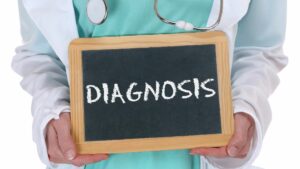Sex addiction is an increasingly prevalent issue that affects a lot of people, but not always in the same way. Sex addicts can have an addiction to masturbation, porn, prostitution, or any other form of sexual activity. The idea of sex addiction has gained momentum recently as more and more people are coming forward with their stories about how this compulsive need for sexual activity impacts their lives. This blog post will discuss what it means to have sexual addiction and give some insight into how you might know if you have a problem with sex addiction yourself!
Contents
Understanding Sex Addiction

Though the term “sex addiction” is widely used, it is controversial and frequently misunderstood. There is no evidence that sex is an addiction or that it can explain repetitive and persistent sexual behaviors. Compulsive sexual behavior disorder, on the other hand, refers to a long-term pattern of repetitive sexual behaviors, fantasies, and urges.
These impulses may cause you great distress and friction in your relationships, as well as make daily tasks like working or studying more difficult.
Out-of-control sexual behavior could also explain the pattern of repetitive sexual activities and urges (OCSB). According to Michael Vigorito, a sex therapist in the District of Columbia and co-author of “Treating Out of Control Sexual Behavior – Rethinking Sex Addiction,” this is a newer concept that refers to a behavioral pattern rather than a clinical disorder. OCSB is a term that refers to intrusive and difficult-to-control sexual urges, thoughts, and behaviors.
Sexual thoughts urge, and behaviors may become the primary focus of your life in CSBD and OCSB. This may cause you to neglect other aspects of your life.
Regardless of the problems, these impulses may cause you, stopping them may feel out of your control, even if that is your intention.
Despite some misunderstandings and stigmatization, what many people refer to as “sex addiction” is not a personal choice.
These behaviors may not be something you do for fun or that you can turn on and off as you please.
Common Symptoms of Sex Addiction

In general, compulsive sexual behavior encompasses a wide range of symptoms.
These behaviors vary in intensity and severity, but to be considered signs of a mental health condition, they must be present in a variety of situations and over a long period.
Some common symptoms are:
- a strong obsession with sexual fantasies, impulses, and behaviors
- Sexual activities that are repeated to satisfy such fantasies and impulses
- Sometimes people try to stop or reduce their sexual fantasies, impulses, and behaviors. But this can make them feel bad. It can make it hard for them to do things like go to work or have a good relationship with someone else.
The duration of symptoms is another important aspect of compulsive sexual behavior disorder.
According to the ICD-11, you must have sex addiction symptoms for at least six months for accurate diagnosis.
Some people are more likely than others to feel guilty, ashamed, or distressed about their sexual behaviors.
Signs of “sex addiction” are not established because it is not a formal diagnosis.
However, not everyone suffering from compulsive sexual behavior will experience the same symptoms or with the same intensity. Depending on the specifics of your case, signs can take a variety of forms.
More on Common Symptoms of Sex Addiction
Some signs of compulsive sexual behavior include persistent and uncontrollable behaviors such as:
- watching pornography
- masturbating
- engaging in sexual activities that jeopardize your safety
- ignoring other aspects of your life to prioritize sexual activities
For example, you may have constant urges to watch pornography. You may choose to forego work or school to stay at home and watch porn.
You might even barricade yourself in the office restroom to watch it on your phone. As a result, your productivity and professional relationships may suffer.
You may be aware of the issue, and it may be causing you a great deal of distress. Despite this, you can’t seem to stop watching porn.
This could be an indication of compulsive or out-of-control sexual behavior.
You may enjoy watching porn regularly, but you know when to stop, and you do it whenever you need to attend to other matters.
Watching porn is unlikely to be a sign of sex addiction in this case. You can stop yourself from doing it when necessary, and the activity does not cause you any distress in your life.
The same logic applies to another common symptom of sexual addiction: compulsive masturbation. Again, you may enjoy masturbating frequently, but if you can stop it at any time and it does not interfere with your tasks, safety, or responsibilities, it is not compulsive sexual behavior.
Causes
Compulsive sexual behavior is most likely caused by a combination of factors, including:
- Underlying or co-occurring mental health conditions
- chemical imbalances in the brain.
- Childhood memories
- Other lifestyle influences include childhood relationships with parents or guardians.
However, not all potential causes of sex addiction have linkage to trauma or underlying mental health issues.
According to preliminary research, an imbalance of dopamine, a neurotransmitter in the brain, may also influence sexual behaviors.
If you have a frontal lobe lesion, tumor, or seizure disorder, you are more likely to experience hypersexuality.
When to seek immediate help
Compulsive sexual behavior can be treated, and it is strongly advised to seek professional assistance. It may be necessary to do so if you:
- take increasing risks during sexual activities
- hurt yourself or others during sex
- find it difficult to complete important tasks (e.g., school or work)
You are not alone if you are considering self-harm or suicide. There is immediate assistance available:
- Call a crisis hotline, such as 800-273-8255 for the National Suicide Prevention Lifeline.
- Text HOME to 741741, the Crisis Text Line.
Diagnosis of Sex Addiction

A psychiatrist or psychologist, among other mental health professionals, can diagnose compulsive sexual behavior, hypersexuality, and out-of-control sexual behavior.
These professionals will ask you about your personal and medical history, your concerns and challenges, and some of your behaviors and thoughts to make a diagnosis.
The information gathered will then be compared to the criteria established by diagnostic manuals or literature.
Obtaining a “sex addiction” diagnosis is not always an easy process. You must be willing to open up to a mental health professional about your sexual fantasies, urges, and behaviors.
Some people may find this level of candor difficult to bear. To address this issue, the psychologists create these tests to guide you through the process.
One of the most common tools is the Sexual Addiction Screening Test. The 25-item, a self-reported questionnaire was developed by noted addiction recovery therapist Patrick Carnes, Ph.D.
The test has been modified and updated to reflect modern internet influences, such as the use of por
nography.
Treatment of sex addiction

If you have compulsive sexual behavior, there is hope. Treatment options exist that can help address the condition and improve your quality of life.
Options for treatment include:
- Cognitive-Behavioral Therapy (CBT): A type of therapy that focuses on the relationship between your thoughts, feelings, and behaviors.
- Group Sessions: A method in which compulsive sexual behavior sufferers share their experiences. This is often helpful for those who feel they cannot talk about it alone or don’t know anyone else experiencing similar problems.
- Medication management: Treatment with medications may be an appropriate option if you have an underlying mental health condition, such as bipolar disorder or depression.
- 12-step programs: Programs modeled after Alcoholics Anonymous (AA) that address addictive disorders.
- Psychosocial: A type of treatment that addresses all areas of your life: physical, mental, and social. If you feel ashamed or embarrassed about sex addiction, remember this is not a character flaw; it’s an illness. Seek professional help if you want to reach recovery and enjoy the benefits of healthy sexual activity.
- Psychodynamic therapy: Psychodynamic therapy investigates the intricate connections between your thoughts and your sexual expression. This type of therapy delves into the deeper meanings of feelings of shame, anger, and low self-esteem.
- Couple’s therapy: Out-of-control sexual behavior in a marriage or other romantic relationship can be difficult for both you and your partner. Couples therapy can help you explore the symptoms of sexual addiction and re-establish trust and communication with your partner.
Strategies for Self-care

In addition to treatment, there are some self-care tips you can use to help manage your condition.
Self-care tips for sex addicts:
- Be honest with yourself and others
- Avoid people, places, things that trigger your urges
- Create a support system
- Practice healthy coping mechanisms
Physical self-care
Following self-care strategies can help you learn about sexual addiction and the professional treatment options available to you. Consider the following suggestions:
- Make an effort to get plenty of rest.
- Consider doing regular exercise.
- A nutrient-dense diet has numerous advantages.
Emotional self-care
- Self-care encompasses more than just physical health.
- Consider taking care of your emotional state as well.
- Relaxing and taking time for yourself can be rejuvenating.
Look for help
- A strong support network is an often overlooked aspect of self-care.
- When you have a sexual addiction, it can be difficult to talk to your loved ones about what you’re going through.
- Finding a support group with people who understand your struggles can be an invaluable way to work through issues that you might otherwise be embarrassed to share.
- Participating in off-site and online support groups may provide you with additional resources.
Conclusion
Sex addiction is a growing problem and it’s not always easy to identify. If you think someone might be suffering from sex addiction, there are many resources available for them as well as their family members or friends who may also need help coping with the situation. Mental health professionals can provide valuable insight into what drives people to engage in addictive sexual behaviors and how they can get back on the right track towards healthy living - even if that means abstinence.
If you are looking for affordable Online Counseling MantraCare can help: Book a trial therapy session


